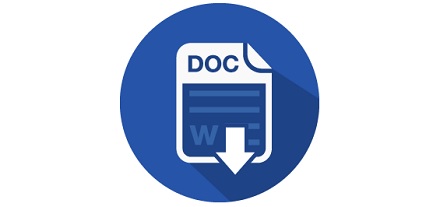Teknik pembelajaran bahasa Inggris yang menyenangkan untuk taman kanak-kanak
DOI:
https://doi.org/10.33474/jipemas.v4i2.10129Keywords:
learning techniques, games, songs, story tellingAbstract
The variety of learning by applying teaching techniques in a fun, effective and efficient manner provides an important role in the learning process of children. Therefore, this community service activity aims to train the participants' abilities in teaching techniques that are specialized in games, songs and storytelling in English. This activity was carried out by using Google Meeting for two days. In addition, the uses of learning media and class routine activities are the goal of this community service. 18 participants participated in this activity, most of whom were kindergarten teachers. The implementation was carried out using the methods of lecturing, brainstorming and discussion, demonstration and mentoring. The results show that the participants' knowledge and understanding of the given themes increased. Participants are also able to answer several questions at the end of the session and be involved in online game activities. The results of the evaluation show that this activity is very useful and beneficial in increasing their ability to implement more varied teaching techniques that are in accordance with the abilities of kindergarten children.
References
AIShaiji, O. A. (2015). Video games promote Saudi children’s English vocabulary retention. Education, 136(2), 123–132. Retrieved from https://eric.ed.gov/?id=EJ1095613
Albaladejo, S., Coyle, Y., & de Larios, J. R. (2018). Songs, stories, and vocabulary acquisition in preschool learners of English as a foreign language. System, 76, 116–128. https://doi.org/10.1016/j.system.2018.05.002
Alnatour, A. S., & Hijazi, D. (2018). The Impact of using electronic games on teaching English vocabulary for kindergarten students. US-China Foreign Language, 16(4), 193–205. https://doi.org/10.17265/1539-8080/2018.04.001
Alpine Montessori. (2017). What are kindergarten methods of teaching? Retrieved October 5, 2020, from Alpine Montessori website: https://www.alpinemontessori.com/what-are-kindergarten-methods-of-teaching/
Ashraf, H., Ghanei, F., & Salami, M. (2014). The Impact of online games on learning English vocabulary by Iranian ( Low-intermediate ) EFL learners. Procedia - Social and Behavioral Sciences, 98, 286–291. https://doi.org/10.1016/j.sbspro.2014.03.418
Bakhsh, S. A. (2016). Using games as a tool in teaching vocabulary to young learners. English Language Teaching, 9(7), 120–128. https://doi.org/10.5539/elt.v9n7p120
Barman, P., Bhattacharyya, D. D., & Barman, P. (2015). Teaching effectiveness of teacher educators in different types of B.Ed Colleges in West Bengal, India. American Journal of Educational Research., 3(11), 1364-1377. https://doi.org/10.12691/education-3-11-5.
Colker, L. J. (2008). Twelve characteristics of effective early childhood teachers. Journal of the National Association for the Education of Young Children, 63(3), 96–106. Retrieved from https://eric.ed.gov/?id=EJ819239
Fitriani, S. (2018). Behavior contract and class routine for primary students: A case study in non-formal English institution. Jurnal Inovasi Pendidikan Dasar, 4(1), 1–12. https://doi.org/10.22236/jipd.v4i1.78
Freeman, D. L., & Anderson, M. (2011). Techniques & principles in language teaching (Third edit). New York: Oxford University Press.
Hwang, W.-Y., Shadiev, R., Hsu, J., Huang, Y.-M., Hsu, G.-L., & Lin, Y.-C. (2014). Effects of storytelling to facilitate EFL speaking using Web-based multimedia system. Computer Assisted Language Learning, 29(2), 215–241. https://doi.org/10.1080/09588221.2014.927367
Jassim, L. L., & Dzakiria, H. (2019). A literature review on the impact of games on learning English vocabulary to children. International Journal of Language and Literary Studies, 1(1). Retrieved from ssrn: https://ssrn.com/abstract=3417298
Kalantari, F., & Hashemian, M. (2016). A story-telling approach to teaching english to young EFL Iranian learners. English Language Teaching, 9(1), 221–234. https://doi.org/10.5539/elt.v9n1p221
Kirsch, C. (2012). Using storytelling to teach vocabulary in language lessons: Does it work? The Language Learning Journal, 44(1), 33–51. https://doi.org/https://doi.org/10.1080/09571736.2012.733404
Lee, S. (2012). Storytelling supported by technology: An alternative for EFL children with learning difficulties. TOJET: The Turkish Online Journal of Educational Technology, 11(3), 297–307. Retrieved from https://files.eric.ed.gov/fulltext/EJ989221.pdf
Paul, D. (2003). Teaching English to children in Asia. Hongkong: Longman Asia ELT, 2003.
Richards, J. C., & Renandya, W. A. (2002). Methodology in language teaching: An anthology of current practice. New York: Cambridge University Press.
Wilkins, D. A. (1972). Linguistics in Language Teaching. Cambridge, MA: MIT Press.
Xiaomei, M., & Quansheng, M. (2018). The Efficacy of song education to vevelop English proficiency for Chinese EFL majors. English Language Teaching, 11(12), 166–176. https://doi.org/10.5539/elt.v11n12p166
Downloads
Published
How to Cite
Issue
Section
License
.









